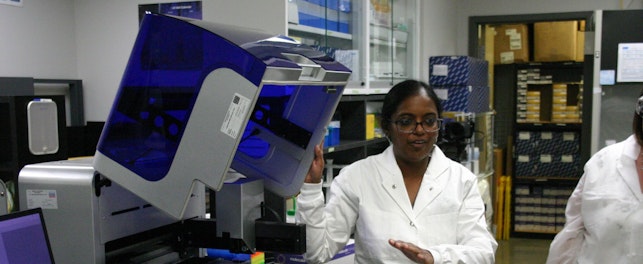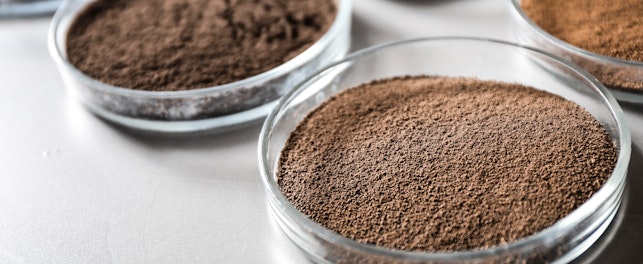Healthy soil is the basis for sustainable cropping and for producing yields that will feed the world’s growing population. Unfortunately, however, industrial farming has led to widespread soil degradation.
This has encouraged many food companies to promote regenerative agricultural practices to support their sustainability claims on their ingredients and products. For example, they suggest changes in soil management practices, such as low/no tillage, covering crops, extended crop rotations, limited bare soil and proper fertility management.
New products (such as biostimulants or seed treatment solutions) claim to support these regenerative agricultural practices by using beneficial organic material/microorganisms. Companies state these products will benefit soil-plant interactions and increase resilience against biotic and abiotic stressors. However, soil health is a big unknown, given that only 10% of a soil’s microorganisms can be cultivated.
The extension of DNA analysis into the soil matrix has opened a new window, allowing us to analyze the soil’s microbial communities, e.g. archaea, bacteria, yeast, fungi and algae. Additionally, protozoa and micro/macro fauna organisms, as well as pests and diseases, can also be included in such investigations. We already know the metabolic pathways for many microorganisms, meaning we can link the genetic information on the soil microbiome with their metabolomic capabilities. This allows us to assess whether nutrient release or storage will take place in such soil, and whether this will lead to carbon sequestration or carbon release. Soil scientists and agronomical advisors have started to interpret soil microbiome data, linking soil biodiversity data with soil metabolomic as well as soil health factors to support regenerative and sustainable farming practices.
The issues are clear: How can products demonstrate their positive impact? Which investigations will irrefutably support such claims? Equally importantly, how can farmers ensure their soil is developing as they wish when they change their soil management approach and treat their soil with new products?
Our fertility management expertise
Our soil/water/plant tissue testing laboratories support precision farming principles worldwide. Our experts examine previously untested chemical and physical parameters to provide farmers with proactive fertility management recommendations. Having invested in a new Global Biosciences Center (GBC) and Competence Center for Molecular Biology (CCMB) based in Lisbon, Portugal, we have now extended our services to also include DNA- and RNA-based investigations and methods.
Our fertility management services
We provide soil microbiome investigation services to support your product development strategy. These include environmental DNA fingerprinting methods to characterize a selected field site (microbiome structure, biodiversity and potential pathogens), as well as microbiome sequencing, identification and characterization of the community structure before and after having applied the new product. Additionally, we also offer full genome sequencing and/or single-strain sequencing services.
Our Next-Generation Sequencing (NGS) metagenomic workflows, bespoke sample extractions and strong bioinformatics capabilities provide the insights you need to fuel successful soil fertility management. Thanks to our metabarcoding services, you can target various regions of 16S rRNA to evaluate bacteria, or other gene targets like the Internal Transcribed Spacer (ITS) for fungi, cytochrome oxidase I (COI) for eukaryotes, and a multitude of other taxonomic targets. We provide a wide range of sequencing workflows – these include shotgun, targeted gene sequencing and long-range PCR. Our targeted quantification utilizes various approaches, ranging from Real-Time quantitative Polymerase Chain Reaction (RT-qPCR) and digital droplet Polymerase Chain Reaction (ddPCR) to enzymatic and culture methods. Post testing, you can access comprehensive reports linked to bioinformatics pipelines, statistical outputs and indexes related to our proprietary microbial traits (MiRAS) database.
Why SGS?
SGS Crop Science focuses on supporting new product developments in research and development (R&D), and on conducting post-commercialization studies. We operate a global network of field research facilities and dedicated analytical laboratories for physical-chemical, ecotoxicological, environmental, microbial and residue studies. Our crop science experts also run seed R&D projects from early breeding to seed treatment trials.
Having extended into soil microbiome investigation, we can now assess not only the performance of pesticides, biological pesticides, biostimulants and new fertilizer products but also their impact on the soil microbiome community. This information will support product label and marketing claims, reassuring farmers that the products have a positive impact on soil health.
For further information, please contact:
Dr Andreas Zumdick
VP Crop Science Services
Germany
t: +49 (0)163 6688 058



